Ankit Raj
Improving Robustness of Deep-Learning-Based Image Reconstruction
Feb 26, 2020

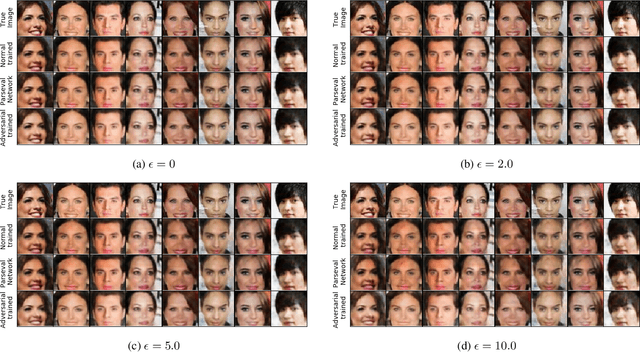
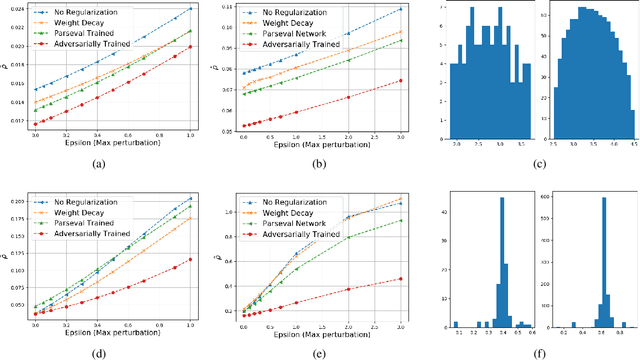
Abstract:Deep-learning-based methods for different applications have been shown vulnerable to adversarial examples. These examples make deployment of such models in safety-critical tasks questionable. Use of deep neural networks as inverse problem solvers has generated much excitement for medical imaging including CT and MRI, but recently a similar vulnerability has also been demonstrated for these tasks. We show that for such inverse problem solvers, one should analyze and study the effect of adversaries in the measurement-space, instead of the signal-space as in previous work. In this paper, we propose to modify the training strategy of end-to-end deep-learning-based inverse problem solvers to improve robustness. We introduce an auxiliary network to generate adversarial examples, which is used in a min-max formulation to build robust image reconstruction networks. Theoretically, we show for a linear reconstruction scheme the min-max formulation results in a singular-value(s) filter regularized solution, which suppresses the effect of adversarial examples occurring because of ill-conditioning in the measurement matrix. We find that a linear network using the proposed min-max learning scheme indeed converges to the same solution. In addition, for non-linear Compressed Sensing (CS) reconstruction using deep networks, we show significant improvement in robustness using the proposed approach over other methods. We complement the theory by experiments for CS on two different datasets and evaluate the effect of increasing perturbations on trained networks. We find the behavior for ill-conditioned and well-conditioned measurement matrices to be qualitatively different.
GAN-based Projector for Faster Recovery in Compressed Sensing with Convergence Guarantees
Feb 26, 2019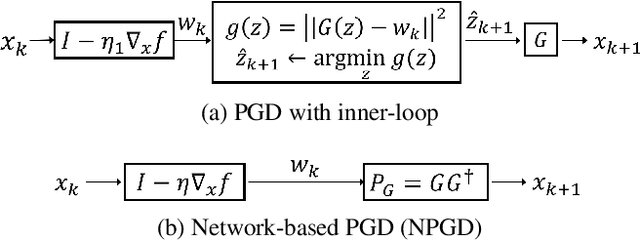

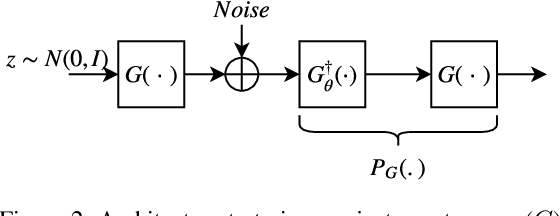
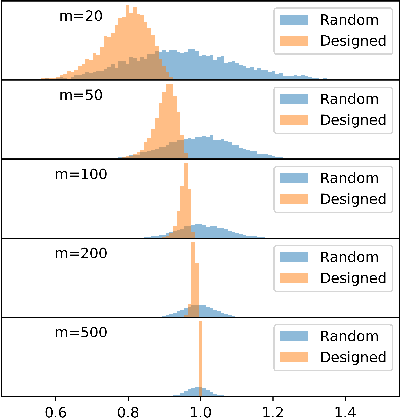
Abstract:A Generative Adversarial Network (GAN) with generator $G$ trained to model the prior of images has been shown to perform better than sparsity-based regularizers in ill-posed inverse problems. In this work, we propose a new method of deploying a GAN-based prior to solve linear inverse problems using projected gradient descent (PGD). Our method learns a network-based projector for use in the PGD algorithm, eliminating the need for expensive computation of the Jacobian of $G$. Experiments show that our approach provides a speed-up of $30\text{-}40\times$ over earlier GAN-based recovery methods for similar accuracy in compressed sensing. Our main theoretical result is that if the measurement matrix is moderately conditioned for range($G$) and the projector is $\delta$-approximate, then the algorithm is guaranteed to reach $O(\delta)$ reconstruction error in $O(log(1/\delta))$ steps in the low noise regime. Additionally, we propose a fast method to design such measurement matrices for a given $G$. Extensive experiments demonstrate the efficacy of this method by requiring $5\text{-}10\times$ fewer measurements than random Gaussian measurement matrices for comparable recovery performance.
 Add to Chrome
Add to Chrome Add to Firefox
Add to Firefox Add to Edge
Add to Edge